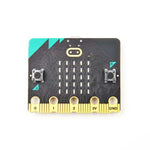With the rapid development of science and technology, programming education has begun to attract global attention. As an important force in global scientific and technological innovation, China has also attached increasing importance to the cultivation of programming literacy among young people in recent years. In January 2025, the No. 1 document issued by the Ministry of Education of China focused on science education in primary and secondary schools and formulated a comprehensive and systematic plan for it.
As a company focusing on children's programming teaching aids, we closely follow the latest policy developments in this field and carry out in-depth cooperation with various schools.
In terms of teacher allocation, from primary school to high school, the allocation of science course teachers strives to be sufficient and high-quality. Not only does it require that the teacher qualification certificate meet the standards, it also encourages teachers with high academic backgrounds to join. It promotes teacher growth and balanced development by optimizing management systems and establishing sharing centers. The allocation of science vice presidents is also highly valued, and full use is made of the forces of universities, research institutes, and other parties to clarify responsibilities and strengthen training and management. Regarding teacher training, we will promote the construction of relevant majors and curriculum optimization in universities, incorporate scientific literacy cultivation into teacher training programs at all levels, and build a research community to promote teacher exchanges and improvement. The construction of regional science education centers integrates resources, develops courses, and explores innovative talent training models. At the same time, the education administrative department actively carries out the construction and transformation of various resources, implements scientific literacy surveys, improves the evaluation system, and uses digital means to empower education and teaching.

Schools play a key role in science education. In terms of curriculum implementation, science education is listed as a key point of teaching reform, plans are formulated according to school conditions, and national, local, and school-based courses are coordinated to integrate multidisciplinary themes to form special projects. Increase the proportion of science education in after-school services, carry out various activities strengthen community guidance, and build a diversified supply system. Campus culture construction taps into natural resources, enriches popular science books, spreads science and technology stories, and creates a strong scientific atmosphere. Experimental teaching focuses on infrastructure construction and experimental plan improvement, integrating new technologies to improve teaching effectiveness. Teaching evaluation revolves around core literacy, combines multiple subjects and diverse methods, and optimizes test question design. And actively coordinates resources inside and outside the school, establishes a pairing system and a sharing platform.

Science course teachers also usher in new requirements. The teaching objectives are closely centered on core literacy, and teaching content and activities are designed according to the characteristics of the school stage, highlighting the cultivation of ability and responsibility. Classroom teaching focuses on comprehensive practice, integrating a variety of teaching methods and interdisciplinary content to help students deeply understand and apply knowledge. In terms of evaluation, promote the integration of "teaching evaluation", update concepts, and actively participate in training to improve evaluation capabilities.

The release of this No. 1 document fully demonstrates the Ministry of Education's high attention to science education in primary and secondary schools. Through all-round planning and layout, it is expected to further stimulate students' enthusiasm for scientific exploration, improve scientific literacy, lay a solid foundation for talent for national science and technology development, and promote the coordinated development of education and science and technology talents. It is of great milestone significance in the process of education reform, guiding primary and secondary school science education to move to new heights and open up new situations.












